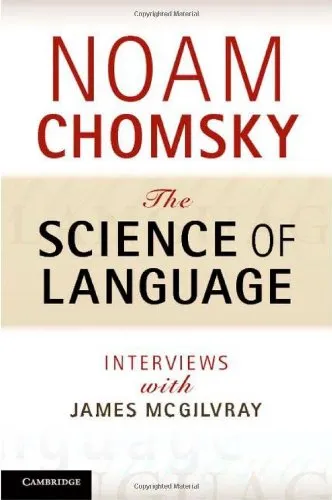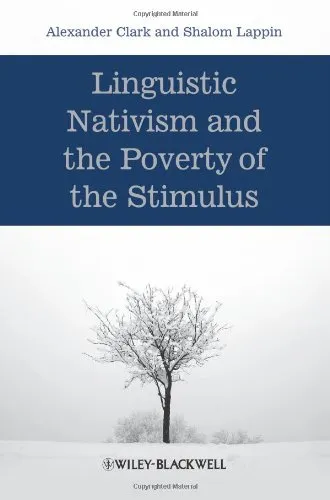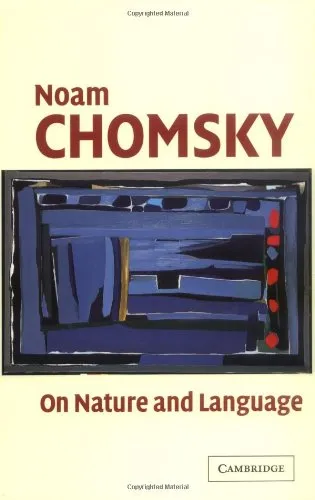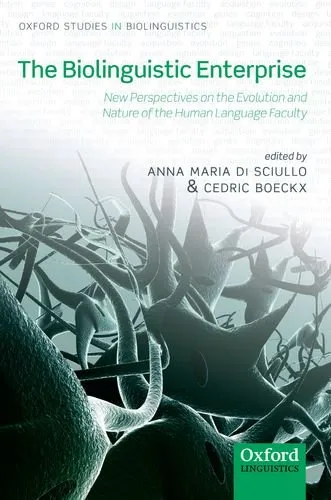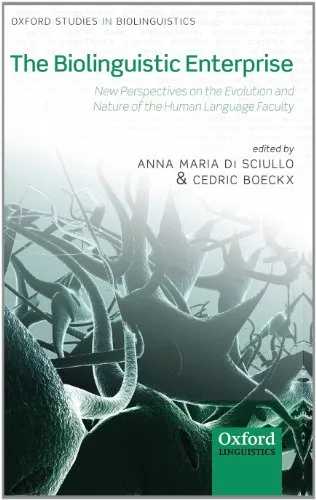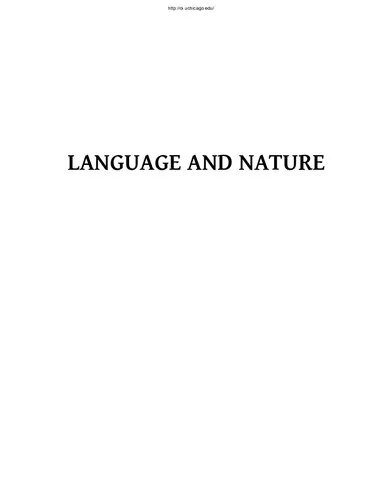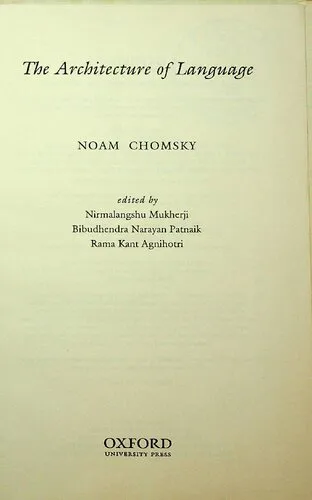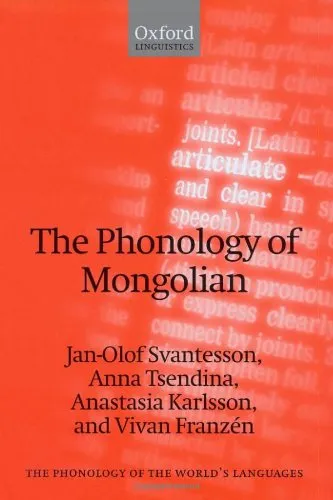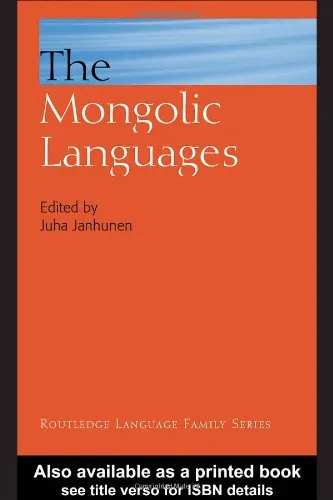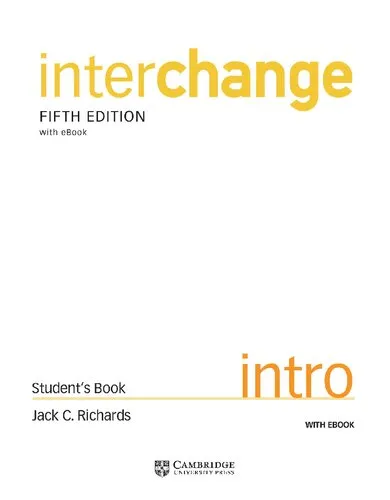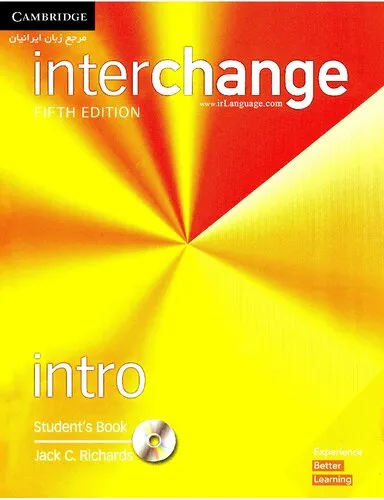The Science of Language: Interviews with James McGilvray
4.5
بر اساس نظر کاربران

شما میتونید سوالاتتون در باره کتاب رو از هوش مصنوعیش بعد از ورود بپرسید
هر دانلود یا پرسش از هوش مصنوعی 2 امتیاز لازم دارد، برای بدست آوردن امتیاز رایگان، به صفحه ی راهنمای امتیازات سر بزنید و یک سری کار ارزشمند انجام بدینکتاب های مرتبط:
معرفی کتاب علم زبان: مصاحبههایی با جیمز مکگیلورای
کتاب علم زبان: مصاحبههایی با جیمز مکگیلورای نتیجه مجموعهای از گفتوگوهای عمیق و فکری میان نوآم چامسکی، یکی از مهمترین فیلسوفان و زبانشناسان معاصر، و جیمز مکگیلورای است. در این کتاب، مفاهیم اساسی در حوزه زبانشناسی نظری، فلسفه زبان، رشد زبان در کودکان، و تأثیر اندیشههای زبانشناسی بر علوم شناختی و علوم اجتماعی به شکلی جامع و جذاب بررسی میشود.
خلاصهای از کتاب
کتاب علم زبان با هدف ارائه تصویری از دیدگاههای نوآم چامسکی درباره زبان، ذهن، و تفکر انسانی نوشته شده است. از زبانشناسی نظری به عنوان چارچوبی برای کاوش در ساختار زبان انسانی استفاده شده، و موضوعاتی مانند Universal Grammar، Modular mind، و روابط میان زبانشناسی و زیستشناسی مورد بررسی قرار میگیرد. چامسکی ابتدا تاریخچهای مختصر از تحول دیدگاههای خود ارائه میدهد و سپس به تحلیل روشها و پرسشهای کلیدی درباره ماهیت زبان و ارتباط آن با تفکر و فرهنگ میپردازد.
این کتاب همچنین به اهمیت زبانشناسی در علوم مختلف اشاره میکند و رابطۀ زبان با موضوعات فلسفی همچون آزادی، خلاقیت، و شناخت انسانی را برجسته میسازد. مصاحبهها نه تنها ایدههای نظری را توضیح میدهند، بلکه بینشی را از چگونگی رشد این ایدهها در طول زمان فراهم میکنند.
نکات کلیدی
- بررسی Universal Grammar و اهمیت آن در دانش زبان.
- ارتباط زبان با Modular mind و علوم شناختی.
- تحلیل پژوهشهای چامسکی در قالب مصاحبهای روان و جذاب.
- رابطه زبانشناسی و زیستشناسی انسانی.
- بررسی نقش زبان در خلاقیت و فهم انسانی.
جملات معروف از کتاب
"It is misleading to think of language as a communication system. More appropriately, language is a system for generating thought."
"The more we understand about language, the more we uncover about the mysteries of human cognition and creativity."
"Language, in essence, is an expression of freedom and infinite possibilities within the human mind."
چرا این کتاب مهم است
کتاب علم زبان پلی است میان زبانشناسی نظری و گستره وسیعی از علوم انسانی و اجتماعی. نوآم چامسکی، به عنوان یکی از برجستهترین متفکران قرن بیستم و بیستویکم، نقشی اساسی در شکلگیری علم زبان در جهان داشته است. این کتاب به خوانندگان این امکان را میدهد که به صورت مستقیم با اندیشهها و تحقیقاتی که زبان انسانی را مرکزیت بخشیده است، آشنا شوند.
برای دانشجویان، پژوهشگران، و علاقمندان به زبان و ذهن، این کتاب منبعی بینظیر و الهامبخش است. ارائه مباحث نظری در قالب مصاحبه، به مخاطبان اجازه میدهد بینشی نزدیکتر و مفهومی شفافتر از دیدگاههای چامسکی به دست آورند. همچنین، تحلیل رابطه میان علوم زبانشناسی و سایر شاخههای علمی از اهمیت ویژهای برخوردار است.
Introduction to "The Science of Language: Interviews with James McGilvray"
"The Science of Language: Interviews with James McGilvray" is an illuminating exploration into the mind of Noam Chomsky, one of the most celebrated thinkers of the modern era. Presented in the form of engaging and thought-provoking interviews with philosopher James McGilvray, this book delves deeply into the field of linguistics, as well as its connections to human cognition, philosophy, science, and politics. Widely regarded as the founder of modern linguistics, Chomsky uses the accessible format of dialogues to share his insights on language’s central role in understanding the fundamental nature of human beings and their creative capacities.
As both a philosophical and intellectual work, the book combines Chomsky's revolutionary ideas with McGilvray's incisive questioning, creating a platform to unpack an array of important topics: the mechanics of human language, its biological foundations, the boundaries of scientific inquiry, and more abstract considerations related to ethics and the human condition. Readers are guaranteed to walk away with a deeper appreciation for not only Chomsky's contributions but also the broader implications of his findings for how we understand ourselves and our place in the world.
Structured across several interviews, this book offers an opportunity to explore the inner workings of Chomsky's mind in an accessible way. Whether you're a student of linguistics, a philosophy enthusiast, or someone fascinated by intellectual thought, this work is designed to give you a front-row seat to the intersections of science, language, and society.
Detailed Summary of the Book
The book is divided into a series of conversations that highlight Chomsky’s pioneering ideas on the nature of language. It begins with an overview of his revolutionary concept of the "universal grammar," the idea that all human beings are born with an innate capacity for language, which sets the foundation for much of his work in linguistics. From there, readers are led into discussions of how this innate faculty manifests itself in the structure of different languages and why this discovery has profound implications for how we conceptualize the human mind.
Chomsky also extends his inquiry to interdisciplinary areas, such as the intersection of language and biology. He argues for language as a biological system, much like other systems in the human body, and explores its evolutionary origins. Additionally, the book touches on Chomsky's broader philosophical approach, including his critique of behaviorism and empiricism as insufficient frameworks for understanding human cognition.
Beyond linguistics, Chomsky and McGilvray also examine topics surrounding the nature of science, the limits of human knowledge, and the relationship between creativity and freedom. These conversations reflect Chomsky’s deeply interdisciplinary approach and reveal his unique perspective on the ethical and political responsibilities of intellectuals in society.
Key Takeaways
- Language is an innate human ability, guided by universal principles found in the mind.
- The study of language can offer deep insights into human cognition, creativity, and biology.
- Empirical science has limits, but exploring these limits often helps refine our understanding of ourselves and the world around us.
- Interdisciplinary approaches, such as connecting linguistics with biology, philosophy, and politics, enrich the scope of human knowledge.
- The role of intellectuals, particularly scientists, extends beyond academia and into the realm of ethical and social responsibility.
Famous Quotes from the Book
"Language is a mirror of mind in a deep and significant sense. It is a product of human intelligence, created anew in each individual by operations that lie far beyond the reach of will or consciousness."
"The history of linguistics is to a large extent a history of attempts to understand the nature of the human mind."
"If we are interested in what we are, in our essential nature, then language is an indispensable object of inquiry."
Why This Book Matters
Noam Chomsky has often been described as one of the most influential intellectuals of our time, and "The Science of Language" provides readers with a rare opportunity to engage with his ideas in a conversational and accessible format. Whether you're a student of linguistics, a scientist, or someone curious about how language shapes our understanding of the world, this book holds profound relevance. It pushes boundaries and challenges prevailing assumptions about the mind, presenting a model of intellectual inquiry that is both rigorous and transformative.
Furthermore, the book is particularly valuable for its ability to connect linguistics to broader human concerns, including ethics, creativity, and politics. By situating his work within these wider contexts, Chomsky offers a framework for understanding the power of language—not only as a scientific phenomenon but as a tool for freedom and self-expression. For anyone interested in the intersection of science, humanity, and society, this book is an essential read.
دانلود رایگان مستقیم
شما میتونید سوالاتتون در باره کتاب رو از هوش مصنوعیش بعد از ورود بپرسید
دسترسی به کتابها از طریق پلتفرمهای قانونی و کتابخانههای عمومی نه تنها از حقوق نویسندگان و ناشران حمایت میکند، بلکه به پایداری فرهنگ کتابخوانی نیز کمک میرساند. پیش از دانلود، لحظهای به بررسی این گزینهها فکر کنید.
این کتاب رو در پلتفرم های دیگه ببینید
WorldCat به شما کمک میکنه تا کتاب ها رو در کتابخانه های سراسر دنیا پیدا کنید
امتیازها، نظرات تخصصی و صحبت ها درباره کتاب را در Goodreads ببینید
کتابهای کمیاب یا دست دوم را در AbeBooks پیدا کنید و بخرید
1440
بازدید4.5
امتیاز0
نظر98%
رضایتنظرات:
4.5
بر اساس 0 نظر کاربران
Questions & Answers
Ask questions about this book or help others by answering
No questions yet. Be the first to ask!
